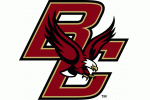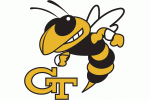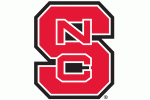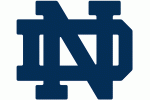I’ll give you the bad news first: it’s going to be hard to pump some life into Virginia football this season.
We might get it running, but in the way that makes you have to keep a few gallons of water and some flares in the trunk. CML and Frank Beamer have both referred to out of conference games as though they somehow don’t count, but they do, and it’s hard to overcome a poor showing there. Programs like Duke realized this and found the first steps to respectability in playing the worst out of conference foes they could find. Iron sharpens iron, sure, but iron rips right through a wad of wet paper towels. This season, we’re the towels.
It’s hard to glean five wins and a postseason berth from the rest of the schedule. See for yourself:
10/10 at Pitt
10/17 Syracuse
10/24 at UNC
10/31 Georgia Tech
11/7 at Miami
11/14 at Louisville
11/21 Duke
11/28 Virginia Tech
Eyeballing it right now, there are opportunities. Pitt without James Conner and Syracuse at home without the benefit of a healthy scholarship quarterback are winnable games (though ‘Cuse giving LSU a game gives me pause, especially in the sorrow-soaked aftermath of Friday night). If we win both, we’re 3-3 before a tougher second half. We have to win both.
It’s hard to see any probable wins in the second half, much less the three that it would take to qualify for the postseason. It’s hard to tell which of winning on the road (which we haven’t done since 2012) or beating any of Duke, UNC, and Virginia Tech (against whom we’re a combined 1-14 since Mike London was hired in 2010) is the more difficult task, but forgive me if I don’t feel optimistic about suddenly turning around either trend in the wake of our last two outings. If we take both of those out of the cards, it looks like Georgia Tech at home is the best bet… but don’t actually bet on it. North Carolina, Louisville, and Miami appear to be the lowest-hanging fruit on paper, but come on the road. To sum it up: we *could* beat any of the teams on the slate for the second half, but none seem like obvious candidates. At least we don’t get Florida State or Clemson this year.
If a turnaround is to be achieved, changes will have to be made. I’m not going to advocate for Mike London to be fired, because I think firing a college coach midseason for anything but the most egregious behavioral reasons is a poor choice. Collegiate athletes are kids, and they’re emotionally connected to the head coach that recruited them. It’s best to let things play out until the end of the season when a cleaner transition to the next guy (who is probably employed elsewhere right now anyway) can be made without some messy interim getting in the way. Since I’m not advocating for the immediate firing of the head coach, I’m not going to say things like “commit fewer penalties” or “scream less” either, since those are things statistically proven to come with him. Here’s what I would do.
1. Strip Steve Fairchild of play calling responsibilities and give them to Chris Beatty. Fairchild has been a punching bag for Virginia fans since he first arrived on Grounds, but he’s since earned it with the dreadful offenses we’ve put on the field over the last few seasons. I would let him stay on as quarterbacks coach (maybe this would give him time to work on the playbook with all of them) and put him in the offense’s planning sessions with Beatty and whomever else is in there, but I’d give final play calling responsibility to Beatty and Beatty alone. Is it guaranteed to be better? No. Could it be that much worse than what Fairchild has shown us? Probably not. There have been whispers that Beatty’s role has already increased, so this move would just continue a trend that’s already begun.
2. Go to a more up tempo offense. This is for the benefit of the offensive line. Looking at our roster (small, quick-ish running backs, a line with a tendency to overheat under pressure, a quarterback with good command of the short to midrange game, a bevy of receiving options), we need to abandon this ludicrous and outdated facade of smash mouth football and play to our strengths: short, quick passes to our collection of tall, sure-handed receivers. This doesn’t mean abandon every principle that the guys have been internalizing since spring, it means emphasizing the parts of the playbook that appear to be working. The longer drops from under center and attempts to throw our collection of 200 pound running backs into the line are setting us up for more third and longs than I or our offensive line are comfortable with.
3. Strip Larry Lewis of special teams responsibilities, and give them to… literally anyone else, you included. An argument can be made that Lewis has been a more spectacular failure than Fairchild. This group lacks discipline, doesn’t appear to communicate on the field, and routinely makes decisions that even I, as a basketball head first and foremost, can identify as fundamentally poor. Mike Archer was a punter. Biscuit returned punts at UVa. I’m sure one of them could give it a go. Lewis can also remain on staff, focusing on his duties with the running backs.
4. Shuffle the front seven and the defensive play calling. I’ve written about the d-line already, but here are the Cliff’s Notes:
- move Andrew Brown to defensive end to take advantage of his new, lighter physique and strong first step
- start Brown at end along with Mike Moore
- start David Dean and Donte Wilkins in the middle
- use Corney like we used freshman Max Valles, as a missile we make a point of obviously launching in the direction of quarterbacks
- use Kwontie Moore to spell everyone (but primarily at tackle where he’s fast, instead of at end, where he’s big)
I’d make these switches hoping that this new line would generate some pressure on its own, and we could keep the linebackers and defensive backs in coverage to try to focus on bending without breaking. While we’re shuffling, I’d give guys like Malcolm Cook and Eric Gallon (since he’s already burned his shirt) more looks at outside linebacker, where Zach Bradshaw has been almost invisible.
5. Find a way to slow the game down for the secondary. Jamie Oakes at 247 wrote on this recently, and he’s right: this group can’t seem to settle on their assignments or even get into position in the right place before the ball is snapped. Maybe part of that can be pinned on losing Anthony Harris’s sharp mind at the point of attack, but it doesn’t really matter why as much as it matters that it’s happening at all. I don’t know enough about the machinations here to be specific, but if the guys playing can’t handle what we’re running, we probably need to run something simpler.
6. More: T. J Thorpe, Jordan Ellis, Olamide Zaccheaus. Less: Albert Reid, Taquan Mizzell as a straight-up running back. Good teams recognize the players that are good at making things happen and find ways to get those players the ball. Thorpe and Zaccheaus have been responsible for our most exciting plays this season. Wanting them to see the ball more is self-explanatory. I don’t want to see less of Mizzell on the field, so much as I’d rather see him utilized all over it — in the slot, in the backfield, split wide, everywhere — in an effort to get him the ball in stride with some open field in front of him. Regarding Reid, he’s looked leaden and Ellis seems to offer more future upside in his spot.
7. Get creative. Funky. Unpredictable.
London’s 2010 team was maybe his most fun to watch on offense. Knowing they were up against the wall every week, they went down swinging with a wide open offense, trick plays, special teams fakes, and a general sense of looseness (in the good way, not in the “9 penalties in a half” way) that we haven’t seen much of since. I would be OK with this attitude reappearing.
It’s unlikely that any of this will happen and there’s no guarantee that it’d save our season if it did, but those are my thoughts. Let me have it on Twitter.



















